Emma Husar: Why I will never be a ‘victim’ of domestic violence
AS A domestic violence survivor and mother of an autistic child, federal politician Emma Husar refuses to let either hold her back from believing in a brighter tomorrow.
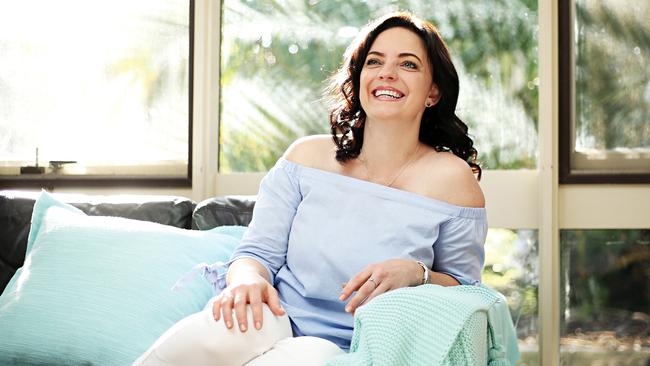
Stellar
Don't miss out on the headlines from Stellar. Followed categories will be added to My News.
FOR Emma Husar, “the last time” was on a Sunday afternoon, when she was 13 years old. And for Husar, 13 has lived up to its longstanding reputation as an unlucky number.
That day, 13 police cars pulled up on the street of her family home, just in time. Her always drunk and abusive father had ordered Emma and her older sister to start digging up the backyard with a metal shovel.
They knew electricity cables ran underground, so it was a potentially fatal job. But he kept two guns in the house. What were they to do? Thankfully their mother, so often the victim of her husband’s brutality, still had the courage to call 000.
This would mark the end of his reign of terror. But sadly for his daughter, it was just the beginning.
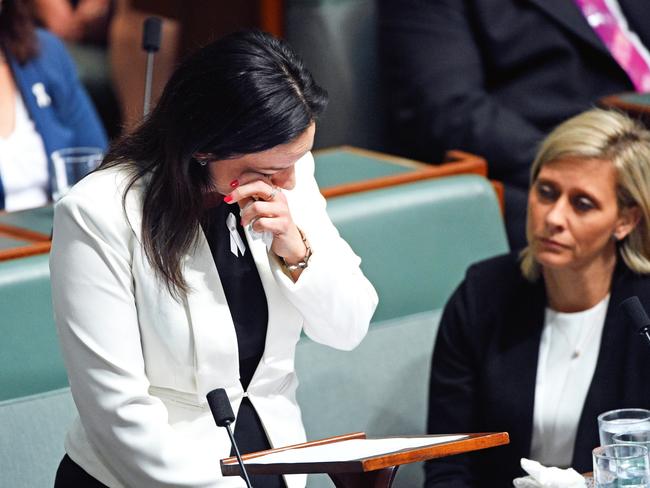
Most people in politics have made sacrifices and endured hardships to get where they are; few live the impossibly charmed life they construct for the public.
But only a handful have managed through the same struggles as Emma Husar. At 37, she is a two-time domestic violence survivor and a single mother of three children. One of them is autistic.
As she was raising them in the western Sydney suburb of Penrith, Husar worked part-time in fundraising and event management, and volunteered as a disability advocate.
It was while campaigning for the National Disability Insurance Scheme that Husar became exposed to politics. She felt drawn to the cause, and the Australian Labor Party in particular. Despite already giving so much of herself, Husar still felt that she had more to offer.
“I guess I’ve always been an agitator,” she says.
Overnight, Husar’s life changed, and she became a champion of the left.
“A lot of people are disengaged from the system, but when you’ve got a kid that has special needs and you need the system, you need to understand how the system works. It becomes very front-of-mind, very quickly.”
Husar ran for NSW State Parliament in 2015; it would prove unsuccessful, but she also proved unbowed. She followed the try with a stint as an adviser to Federal MP Ed Husic.
In July 2016, she ran again — this time for Federal Parliament in the seat of Lindsay. Against the odds and more specifically history, she was unexpectedly elected. For the first time in 32 years, the seat was won by the party that did not form government. And for the first time ever, the ALP had a female elected in the seat.
Overnight, Husar’s life changed, and she became a champion of the left. Soon she would become a hero, too. She gave her maiden speech to Parliament in September 2016 and announced that “I have spent 29 out of my 36 years … living in domestic violence.”
Suddenly, she was a voice for those who, like her, had suffered in silence for so long. She recounted multiple incidents of fleeing to shelters as a child when her father’s abuse got too much. He would apologise. They would return. And the vicious cycle would continue.
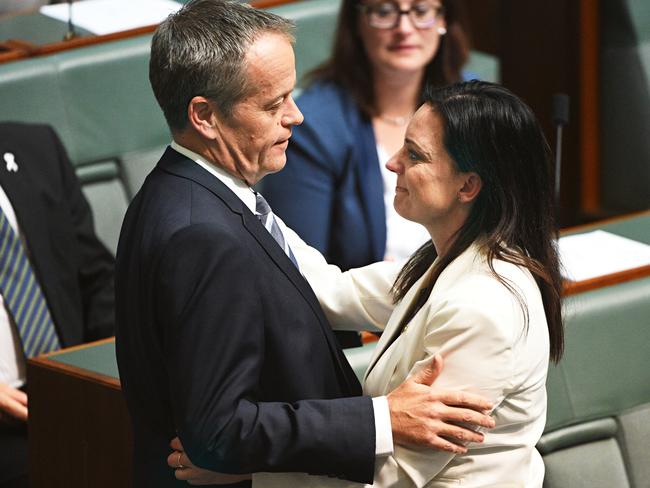
Two months later, when Husar again recounted that fact in another Parliamentary speech to mark White Ribbon Day, she burst into tears.
The emotional power of her speech moved colleagues and the public at large — it made headlines and went viral. Looking back on that day, Husar says, “I never dreamed, in my wildest imaginings, that I would stand up in Parliament and share that, and that doing so would have the impact it’s had.”
Back to that fateful Sunday afternoon. After the police arrived, the drunk would be gone from their daily life. Or so they thought.
Husar’s father did not disappear for good, as they had hoped. He took the opportunity to ransack their home, removing anything of value they had left.
After two years, her mother’s mental health issues started to manifest.
“Mum couldn’t cope,” Husar tells Stellar.
“She was a single mum with no financial support; she started to fall apart.”
Her “pretty tough” mum met a new boyfriend, who did not want her daughter in the way.
Still, she was tough. When she was pregnant with Husar’s sister, she was involved in the worst commuter train disaster in Australian history.
Eighty-three people were killed when a commuter train was crushed by a bridge when approaching Granville station one morning in January 1977. Somehow, she survived — with scars to show for it.
But the years of physical and psychological abuse at the hands of her husband scarred her differently.
As such, recalls Husar, “She was pretty tough on us.”
When it came to caring for her kids, her mother knew no other way.
As Husar prepared for her formative senior school years, her “pretty tough” mum met a new boyfriend, who did not want her daughter in the way.

Already, Husar was working at McDonald’s to feed and clothe herself. Now she would have to pay her own school fees if she wanted to complete her Catholic education. She would be locked out of the family home so many times that eventually she did not return, becoming a ward of the state.
Thankfully, her boyfriend’s family took her in. Well, sort of. A caravan on their front lawn offered some stability, and importantly, shelter. Even now, she tells Stellar, looking back on her youth can be overwhelming.
“If I put all of that stuff in front of me on a daily basis, I’d probably be in a straitjacket.”
By the year 2000, Husar seemed to have found peace.
“I thought I was winning at life,” she says.
“I hadn’t married an alcoholic or a drug addict. My husband wasn’t violent like my dad. ‘Excellent!’ I thought, ‘I’m not a victim, the cycle has been broken.’”
Over the following years, she would come to learn just how wrong she was in her assessment.
She walked out in 2015 after speaking to a woman — “who was about maybe eight years younger than me, who said, ‘This is really unacceptable. The way you’re being treated and what’s happening to you is domestic violence. You need to leave.’”
“I lost my sh*t. I was like, ‘She said what?!’ I was in complete disbelief.”
Husar is reluctant to share the details of what transpired — with Stellar, with the public, with anybody — as her case remains tied up in Family Court, where it has sat for the past two and a half years.
What she will say is that “there was some physical stuff … but it was much more [about] power, financial control, control around my home. I wasn’t allowed to go to work — but then I would be called lazy. Then when I did go, I worked too long and too hard. I was always in the position of not being good enough.”
Don’t feel sorry for Husar. She is clear when she says that she does not want your pity.
What she does want is your ear — especially if you’re Pauline Hanson. Considering what she has dealt with, personally and politically, Husar is always prepared to speak her mind.
Last month, One Nation leader Hanson called for autistic children to be removed from mainstream classrooms. Husar’s son Mitch, 10, has been diagnosed with autism spectrum disorder, ADHD and sensory processing disorder.
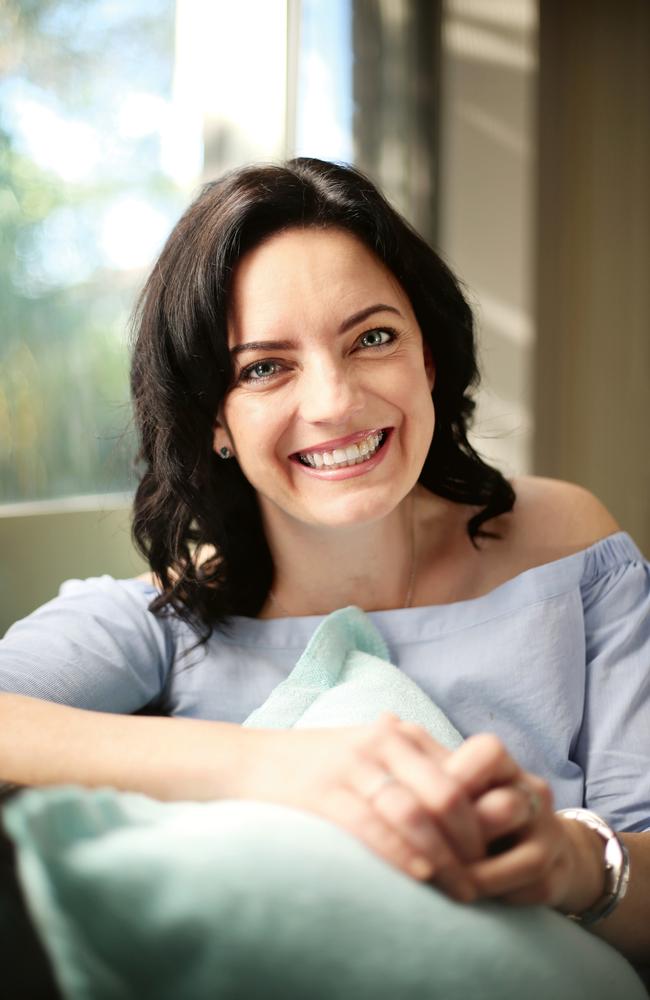
“His meltdowns have been violent and extreme. I’ve had multiple smashed TVs, smashed windows. He used to bang his head until it bled and he’s given me a concussion. But it’s tricky because you never want them to feel like a burden. He’s not a burden,” she insists.
Mitch has always been very bright. He first went to a school for specific purposes and then a support class in a mainstream school. Now he is just like every other child his age in a mainstream class and he’s thriving.
“He learns from the other kids about how to make good decisions and what is considered socially appropriate behaviour,” Husar says.
Her reaction to Senator Hanson’s comments?
“I lost my sh*t. I was like, ‘She said what?!’ I was in complete disbelief.”
Husar later brought it up with Senator Hanson directly.
“All she could say is that I hadn’t read her speech. She just kept talking over me. I said, ‘You are wilfully ignorant,’ which pisses me off even more than what she said. She is missing the empathy gene.”
“I say, you know, survivor — even though I’m really uncomfortable with that term.”
All Husar can hope is the same never gets said of her.
Being a mum to Mitch, Zhalia, 15, and nine-year-old Evie will always take precedence over politics. But through her experiences, Husar can’t help but be driven to help others.
Labor leader Bill Shorten calls her “the warrior from the west” and tells Stellar that “Emma is a remarkable woman. She’s tenacious, she’s passionate and she’s a fighter.”
Those are the qualities she applies to all of her priorities; whether it is reforming the family court system, better educating the community on the challenges of autism or making sure victims of domestic violence know that they deserve better.
As she puts it, “Just because it happened doesn’t mean that’s where you stay. I never saw my experience — either as a kid or as a woman who went through domestic violence — as a strength. It’s just what it is. I never call myself a victim. I say, you know, survivor — even though I’m really uncomfortable with that term. I always thought I’d tell the story of my life, or share it.
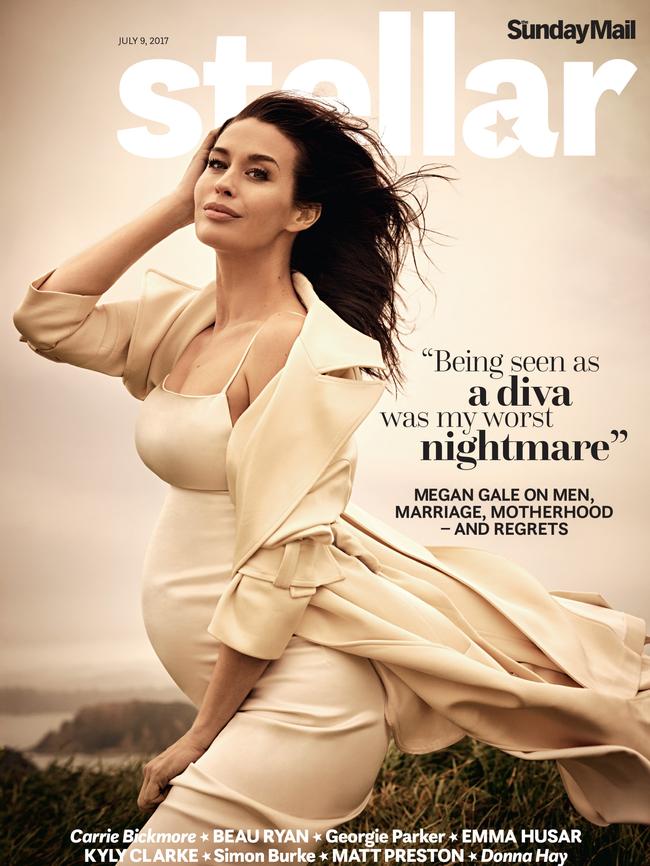
“Somebody asked me the other night, ‘Why do you do this?’ And I still can’t put my finger on it. Why do I have that ability to change stuff like that very powerful room in Canberra? Even being an MP, I still see myself as another street kid.” She lightens the mood with a pop-culture reference.
“What’d she call it? I’m still Jenny from the block!”
Her scrappiness has led her to the upper echelons of Australian politics — and it could someday take her all the way to the top. Told this, Husar does not shy away from the idea.
“It’s really funny,” she says.
“A lot of people have said I should be, or that they can’t wait for me to be. It’s lovely; a really kind thing to say. I’m your typical woman: if you ask me if I have what it takes, I’ll say, ‘Hell no, I don’t!’ Because women, as we know, think they have to tick off the 11 out of 10 criteria in that job application.
“I’ve never woken up and wondered when I would be Prime Minister … now, certainly, that opportunity is in front of me. If the opportunity came up? Sure, I’d go there.”
In other words, you probably haven’t heard from Emma Husar for the last time.
Laura Jayes is a political reporter and anchor on Sky News Live
Originally published as Emma Husar: Why I will never be a ‘victim’ of domestic violence



